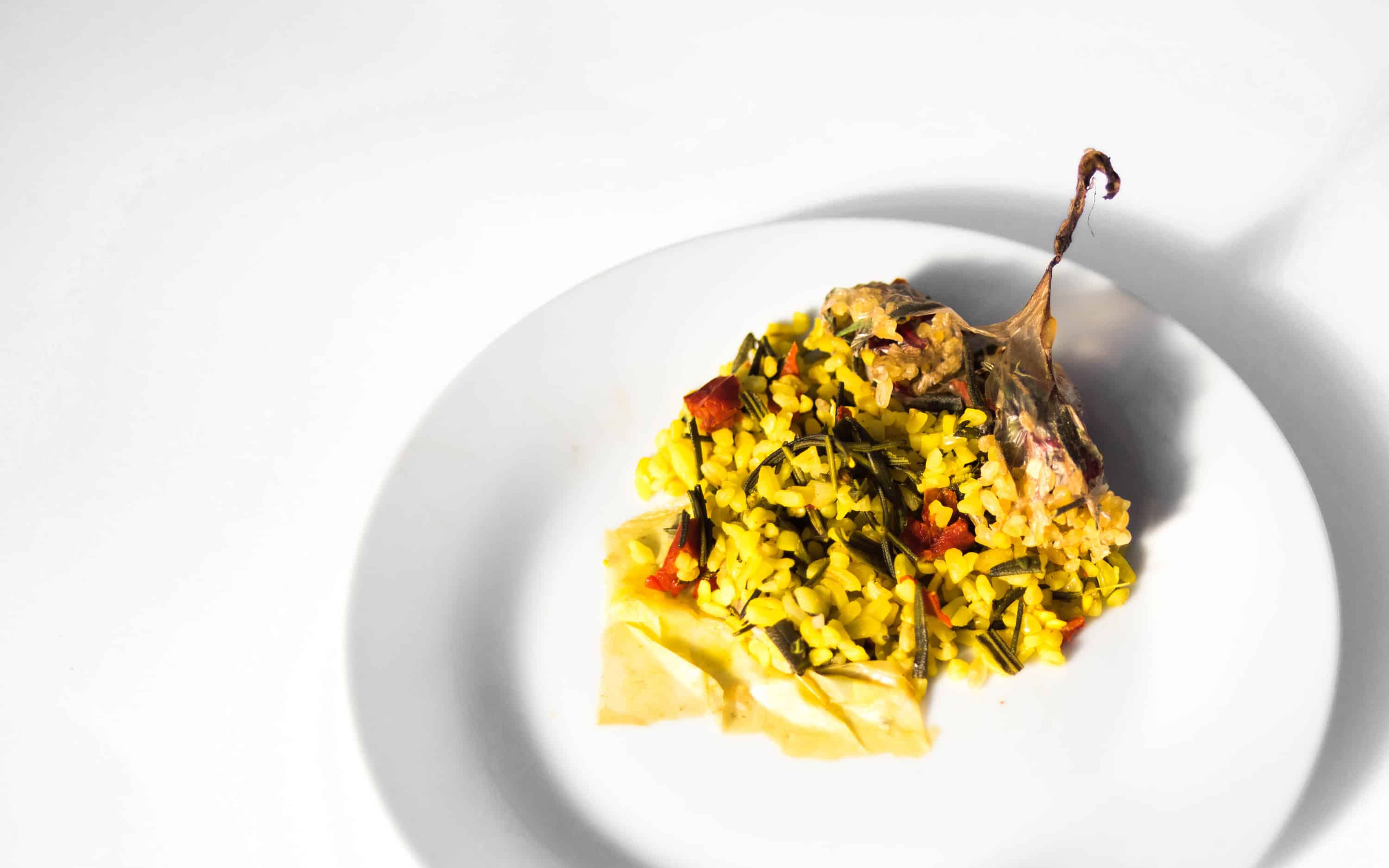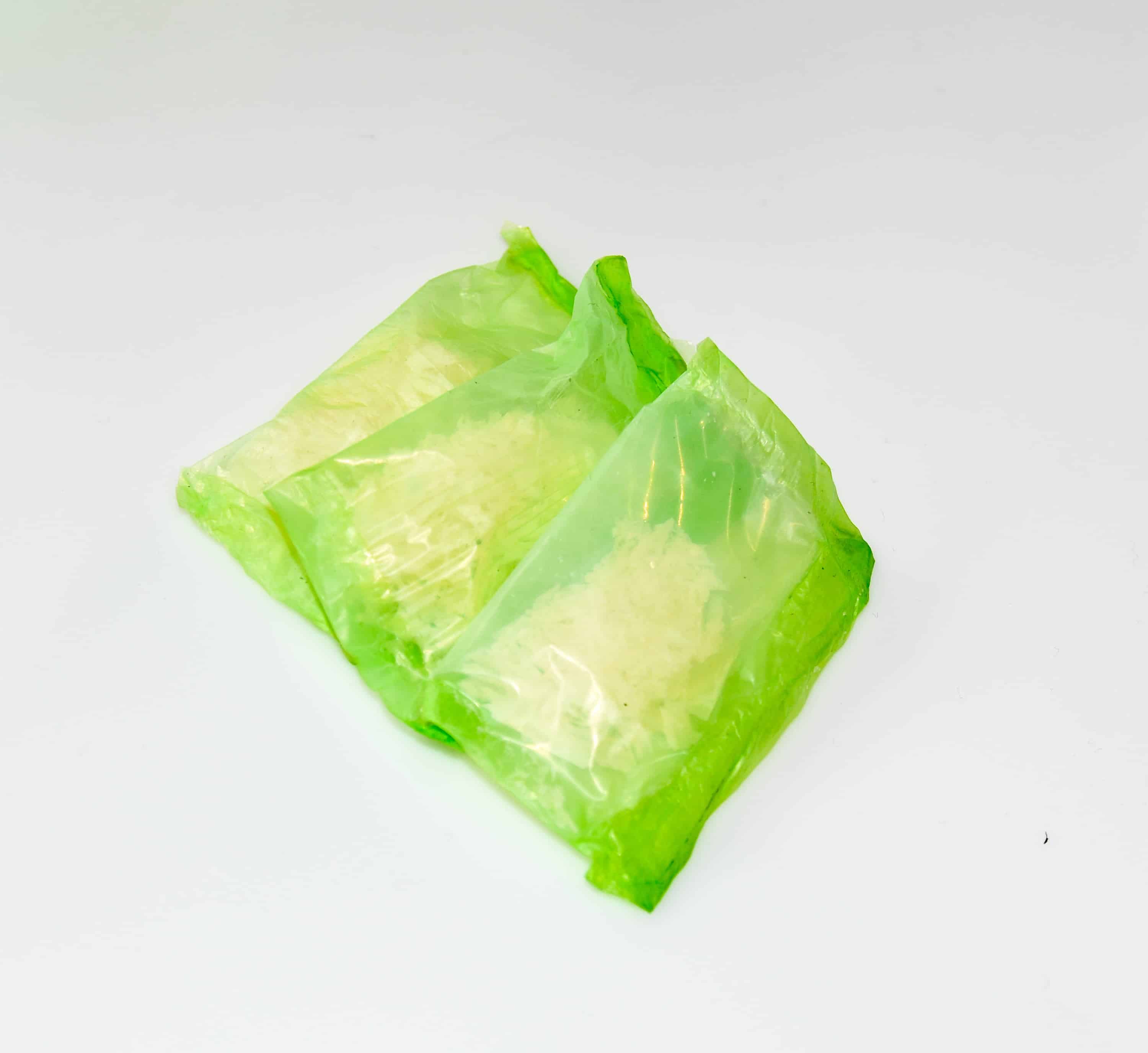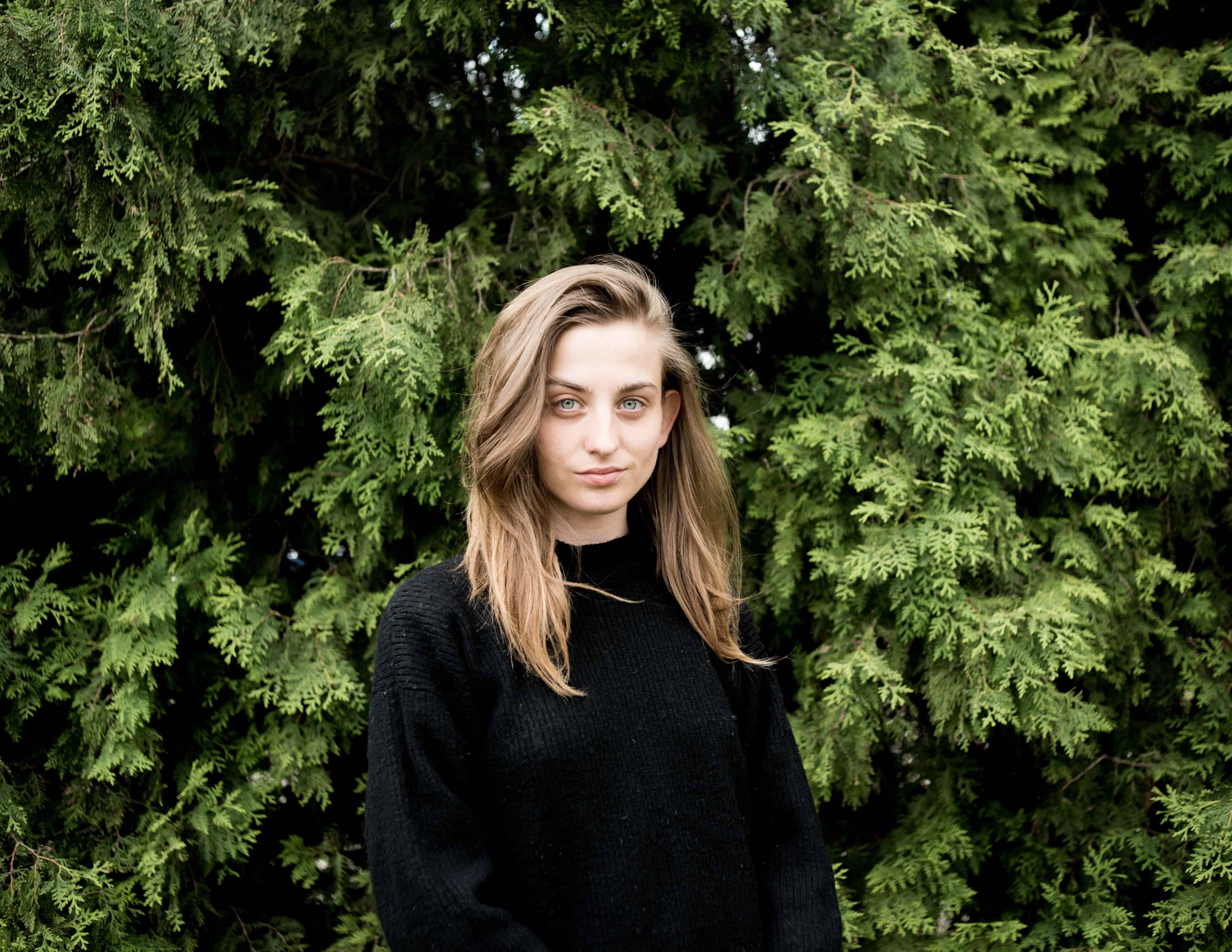I started from the question
“If vegetables are mass-produced and farms look like factories,
what if ‘things’ were grown too”?
Róża Janusz is a recent graduate, and has created an edible, plastic-free packaging using the fermentation process. SCOBY is grown through the same fermentation process as kombucha – a fizzy fermented tea. Using this biodegradable packaging, you can store dry and semi-dry food like seeds, nuts or herbs.
Roza studied Industrial Design at the School of Forms in Poznan. Last year, her project was brought to the attention of top industry and lifestyle magazines such as Designboom, Deezen, Mashable and Vogue. It also reached the final at the Make Me! Competition, part of the Lodz Design Festival.
We talk about her beginnings, of being sick of plastic and upcoming changes in the packaging industry.

Róża Janusz, The Fully Edible Packaging Solution
Sylwia Krasoń: You had a really good year, 2018. Congratulations. Were you surprised by such success, and international media interest?
Róża Janusz: Yes and No. I was surprised that a bachelor degree industrial design project can capture attention from even beyond the field; it showed me that Design is valued not only for finished projects, but also as a point of inspiration for individuals as well as big companies. On the other hand, I am not surprised that projects that give some alternatives to today’s wasteful consumption capture attention, as a change is necessary. Now we are starting to see the damage we’ve inflicted on the environment; the news presents daily pictures of plastic waste, and we see for ourselves that beaches don’t look like holidays pictures anymore.
SK: According to the Collins Dictionary, the words of the year for 2018 were ‘single-use’. Within the last five years, these words have seen a four-fold increase. Single-use refers to products made to be used only once, and then thrown away; the popularity of this phrase seems to reflects the increasing global awareness of this environmental issues. Do You believe that Your project, ‘SCOBY’, ties well to these concerns and trend?
RJ: In a perfect world, I’d wish to stop using single-use products at all, but we cannot go back to old times: We live in a different, faster time. In everyday life, I have to admit that sometimes I enjoy single-use moments, like confetti on a celebration. That’s why my SCOBY project is so important to me personally. What if the confetti that makes my niece happy doesn’t pollute the environment. but even enriches it? That’s why I am dedicated to introducing solutions that bring joy and don’t pollute the environment at the same time.

SK: You created the SCOBY packaging concept as part of your graduation project in Industrial Design, at the School of Form in Poznań. What made you want to start working on an alternative to plastic food packaging?
RJ: I don’t want work with plastic anymore; even prototyping made me sick sometimes. Working closely with materials showed me a world I wasn’t aware of as a consumer. I decided that I want to design things that will be healthy in use, and also in production. That’s my first test now, I work with materials that I can safely touch, smell, and feel good during the prototyping process. SCOBY meets my personal requirements. SCOBY is also renewable, cheap when scaled up, and protective; we need new packaging solutions and SCOBY can be one of them!
SK: The UK government’s environmental strategy to reduce plastic waste over the next 25 years highlights the need for brands to reconsider the use of plastic as a packaging material. Recently in the European Parliament, a ban on the sale of disposable plastic objects was passed. By 2021 EU countries should find a replacement for plastic. Do you see SCOBY as a common solution on a mass-scale in the future?
RJ: I think that the main change in the packaging industry in the near future, will be opening up to a wide variety of diverse solutions. I don’t see any one material replacing all the plastics we use; I think that there will be many varieties of plastic-replacing material, like one based on algae, some waste-based materials, and SCOBY as well among many others.

Róża Janusz, The Fully Edible Packaging Solution
SK: What were your beginnings? Can you share with us your journey from the prototype to the end product? What were your ups, downs and turning points?
RJ: I started from the question “If vegetables are massed produced and farms look like factories, what if ‘things’ were grown too?” From that question, the journey began. I investigated many grown or organic waste materials, and I saw big and un-imagined possibilities for the SCOBY material. That’s how it all started. Ups and downs are part of the process, but the real turning point was the interest of people. I started SCOBY from a question, and now SCOBY is growing by co-creation. My goal is to keep the project open, as inventors/start-ups that aim to replace plastic shouldn’t compete, but cooperate for a bigger purpose.














